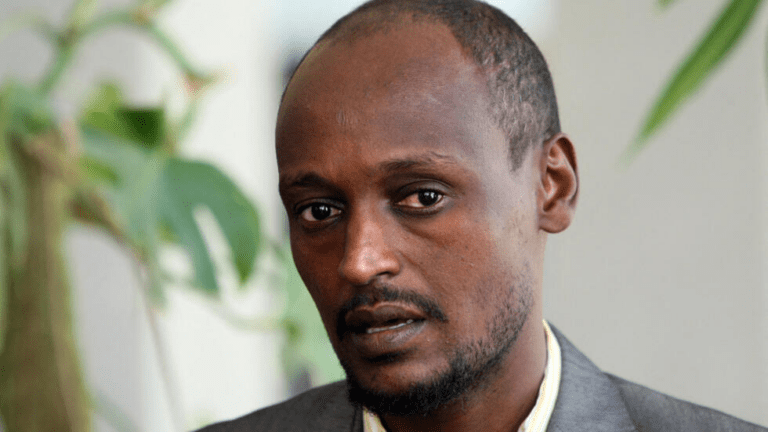It’s a story often repeated by those who knew him. When he was a student in Canada in the early 2000s, Yaya Dillo Djerou Betchi, the Chadian opposition figure who died on Thursday after being seriously injured the day before during an assault by security forces on his party’s headquarters, liked to tell his friends that he should not be “put on the same level” as his other fellow citizens.
“I am destined to play a major role in the future of our country,” he promised, when he was just a mechanical engineering student at a Canadian university.
For anyone familiar with his personal history, the future engineer’s ambitions were anything but far-fetched.
“Called to play a role…”
Yaya Dillo was the nephew of Idriss Deby Itno, who has been at the head of the country since 1990 after ousting his former mentor, President Hissène Habré, in a lightning offensive that took him from the Sudanese border to the capital N’Djamena. Yaya Dillo, who was only a teenager at the time, had actively participated in his uncle’s conquest of power.
Unlike most of his companions, young Yaya was not content to take advantage of the benefits of his proximity to the country’s new ruler.
He decided to go back to school. He obtained a bachelor’s degree in mathematics, then flew to North America at the end of the 1990s. There he obtained a degree in Electrical Engineering and Telecommunications from the prestigious University of Ottawa.
The welcome he received back home did not live up to the young engineer’s expectations. Ignored by his uncle, he was gradually pushed out of the circles of power, after having begun to publish a few articles critical of the regime.
Meanwhile, the ruling clan was splitting up. The twins Tom and Timan Erdimi, also nephews of President Déby, went into dissidence and launched an armed rebellion. Yaya Dillo became their spokesman.
A dispute soon arose between the Erdimi brothers and Dillo over the authorship of their movement, called ‘Socle pour le changement, l’unité nationale et le developpement’ (Foundation for Change, National Unity and Development, SCUD).
Accused of sabotaging the rebellion and being a spy for the regime, Dillo was taken prisoner in their Sudanese refuge by his cousins, who created another movement, the ‘Rassemblement des Forces pour le Changement’ (Rally of forces for change, RFC).
Return to Ndjamena
Transferred to Khartoum, the capital of Sudan, he was released after an intervention by President Idriss Deby Itno.
Back in N’Djamena, he was appointed Minister of State, Minister of Agriculture, then Minister of Mines and Energy. He has also been an advisor to the President on several occasions.
A few years later he was promoted to Resident Representative of the Central African Economic and Monetary Commission (CEMAC).
Was he dismissed or did he resign? The versions differ.
But the young man has still not buried his dream of “playing a big role” in his country, as he promised his student friends during his stay in Canada.
He tried to set up a political party. Faced with administrative obstacles, he joined Dinamou Daram’s ‘Parti Socialiste Sans
Frontières’ (Socialist Party without Borders, PSF) in 2021.
An almost chosen end
On behalf of this party, he submitted his candidacy for the presidential elections in April of the same year, when his uncle was seeking a sixth term in office. A legal case concerning him then resurfaced. Yaya Dillo was accused of defamation by the First Lady, Hinda Deby Itno.
His refusal to report to the police led to clashes between his supporters and the security forces on 27 February 2021. The following day, a Presidential Guard unit attacked her home in N’Djamena’s 5th arrondissement. His mother and two cousins were killed. The “rebel nephew” was not arrested. He was exfiltrated with the complicity of a few high-ranking army officers.
Three years later, when his uncle finally died the day after his election and was replaced in April 2022 by his son, General Mahamat Idriss Deby Itno, Yaya Dillo was once again the subject of an attempted arrest. On 27 February 2024, the arrest of a member of the PSF executive office, accused of involvement in an attack on the president of the Supreme Court, led to clashes between the security forces and Yaya Dillo’s supporters. The following night, an attack on the ANSE headquarters was attributed to him by the authorities.
Retreating with his men to his party’s headquarters in the Klemat district, the opponent was targeted by an assault by the security forces. On Thursday 29 February, the public prosecutor in Ndjamena announced that he had died. It was an undoubtedly unplanned end, but one that was almost provoked.
CA/los/ac/fss/abj/APA
The deadly ambition of Yaya Dillo, Chad’s staunchest opponent

Previous ArticleS/Africa urges ‘other measures’ to end Israel’s impunity

